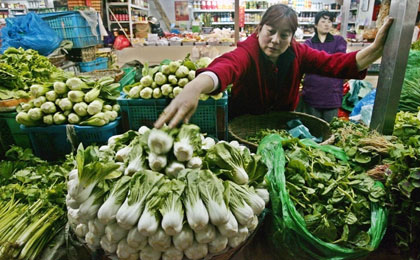Fears grow yuan lending may stoke inflation
By Xin Zhiming (China Daily)
Updated: 2008-05-14 08:08
Updated: 2008-05-14 08:08
China's annualized growth in yuan lending dropped slightly to 14.7 percent in April, but the lending volume in the first four months amounted to nearly half of the preset target for this year, triggering concerns excessive lending could stoke high inflation this year.
The devastating earthquake that hit Southwest regions on Monday will further complicate authorities' macroeconomic policymaking, analysts said.
|
|
Yuan-denominated lending rose 14.7 percent in April from a year earlier, compared with 14.62 percent in March, the central bank said in a statement yesterday. But new yuan loans in April reached 463.9 billion yuan, compared with 283.4 billion in March and 422 billion in April 2007, indicating heavy pressure on policymakers' efforts to curb lending.
The new yuan lending for the first four months reached 1.79 trillion yuan, accounting for nearly half of last year's amount. The central bank reportedly is requiring the amount of new yuan lending this year not exceed last year's level.
Also, money supply growth picked up in April. The annual growth in the country's broad measure of money supply, or M2, quickened to 16.94 percent in April from 16.3 percent in March. Growth in the narrow measure, or M1, also accelerated to 19.05 percent in April from 18.25 percent in March.
"The authorities will stick to their tightening stance this year, but so far, the effect has not been very satisfactory," said Zhang Jun, head of the China Center for Economic Studies at Fudan University.
The earthquake in Sichuan province and neighboring regions could push up the already-high inflation, although many economists believe the consequential increase would not be significant. Sichuan is one of the country's major grain producers, while food prices remain a key driving force of the country's inflation.
"This may require tighter policies, but reconstruction in hard-hit regions also needs relatively relaxed monetary policies and capital injection is needed to restore the local economy," Zhang said.
Also, rising international prices of major commodities, such as oil and agricultural products, would negatively impact China's inflation-curbing efforts, he said.
|
||
|
||
|
|
|
|
